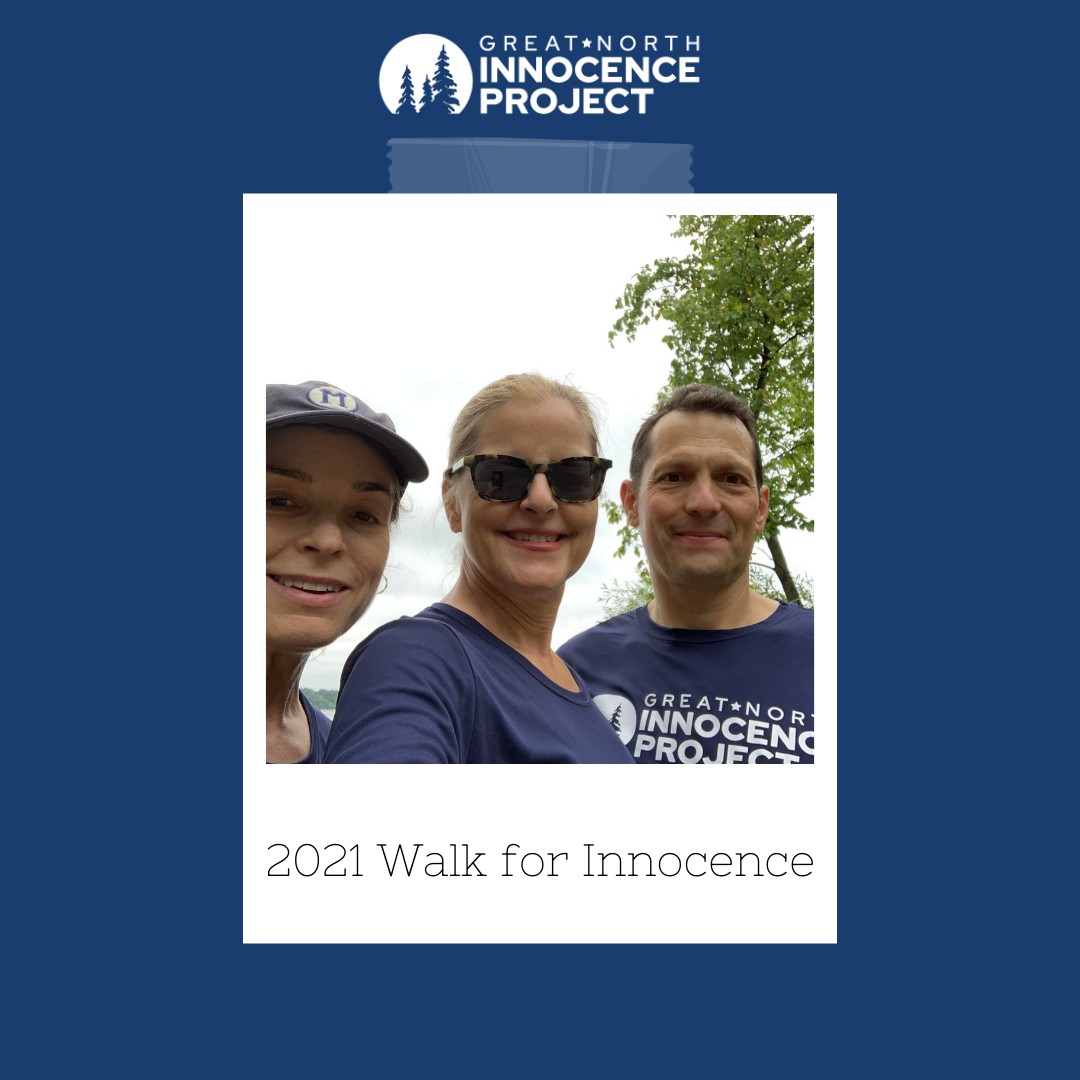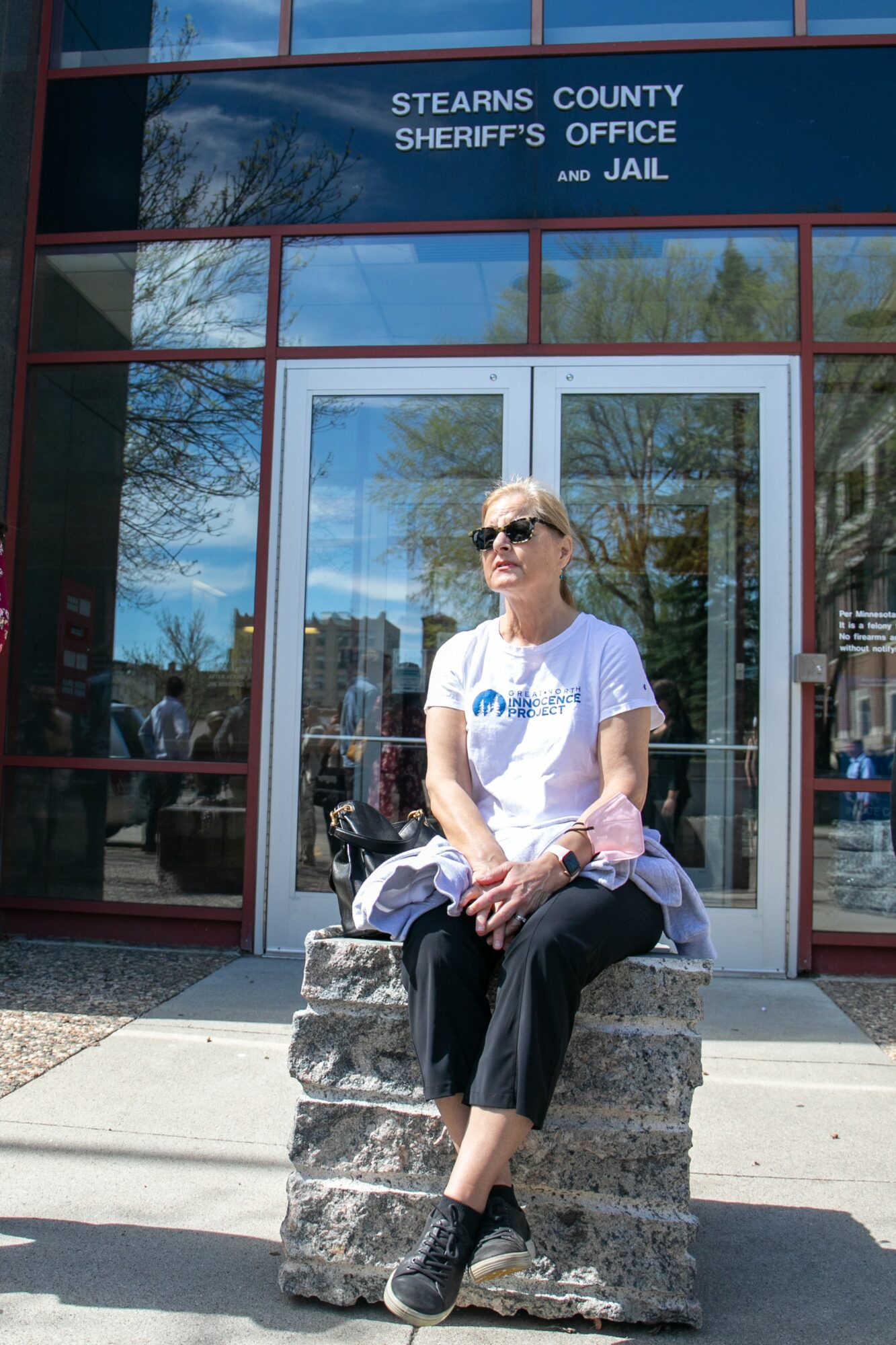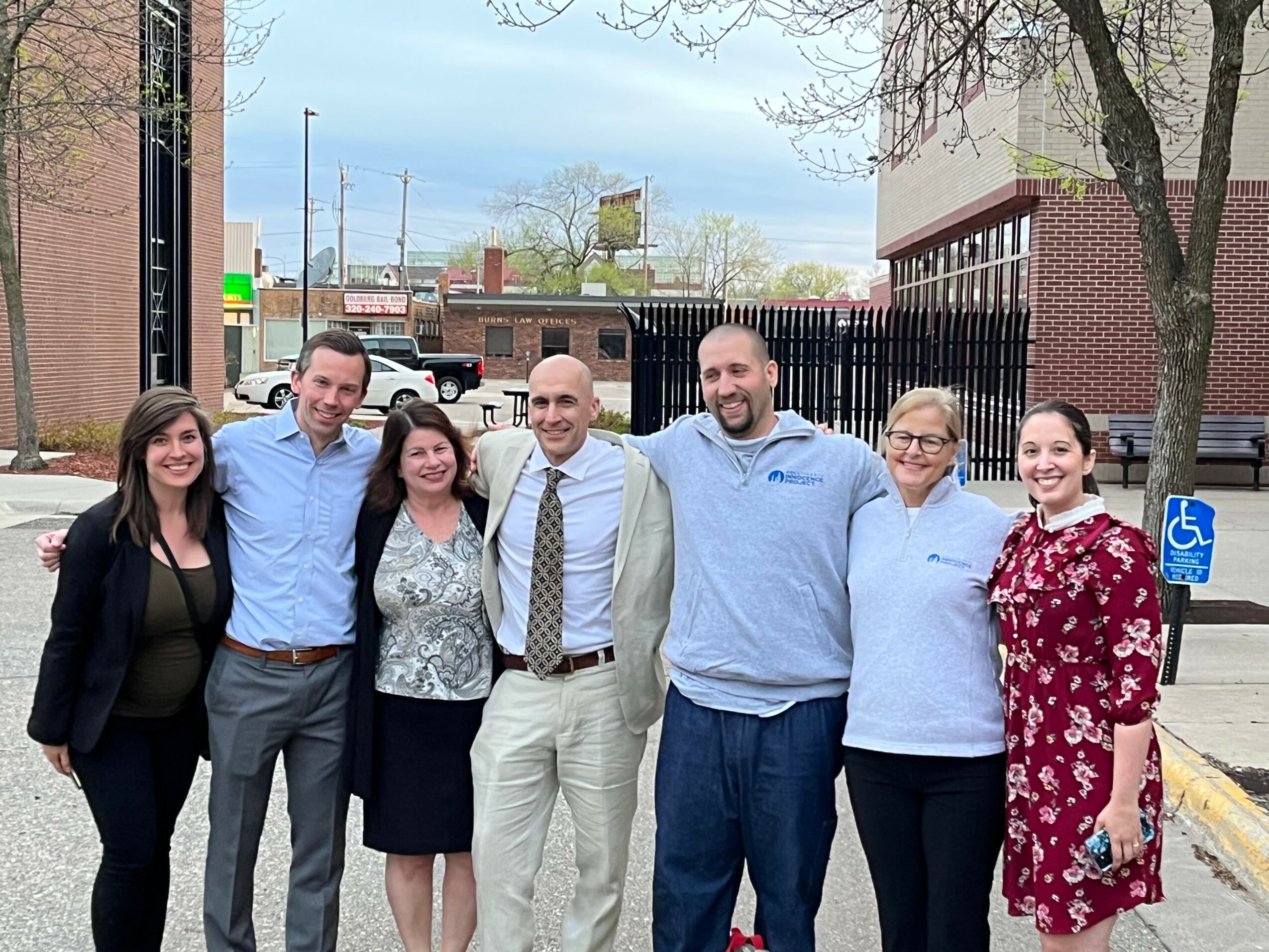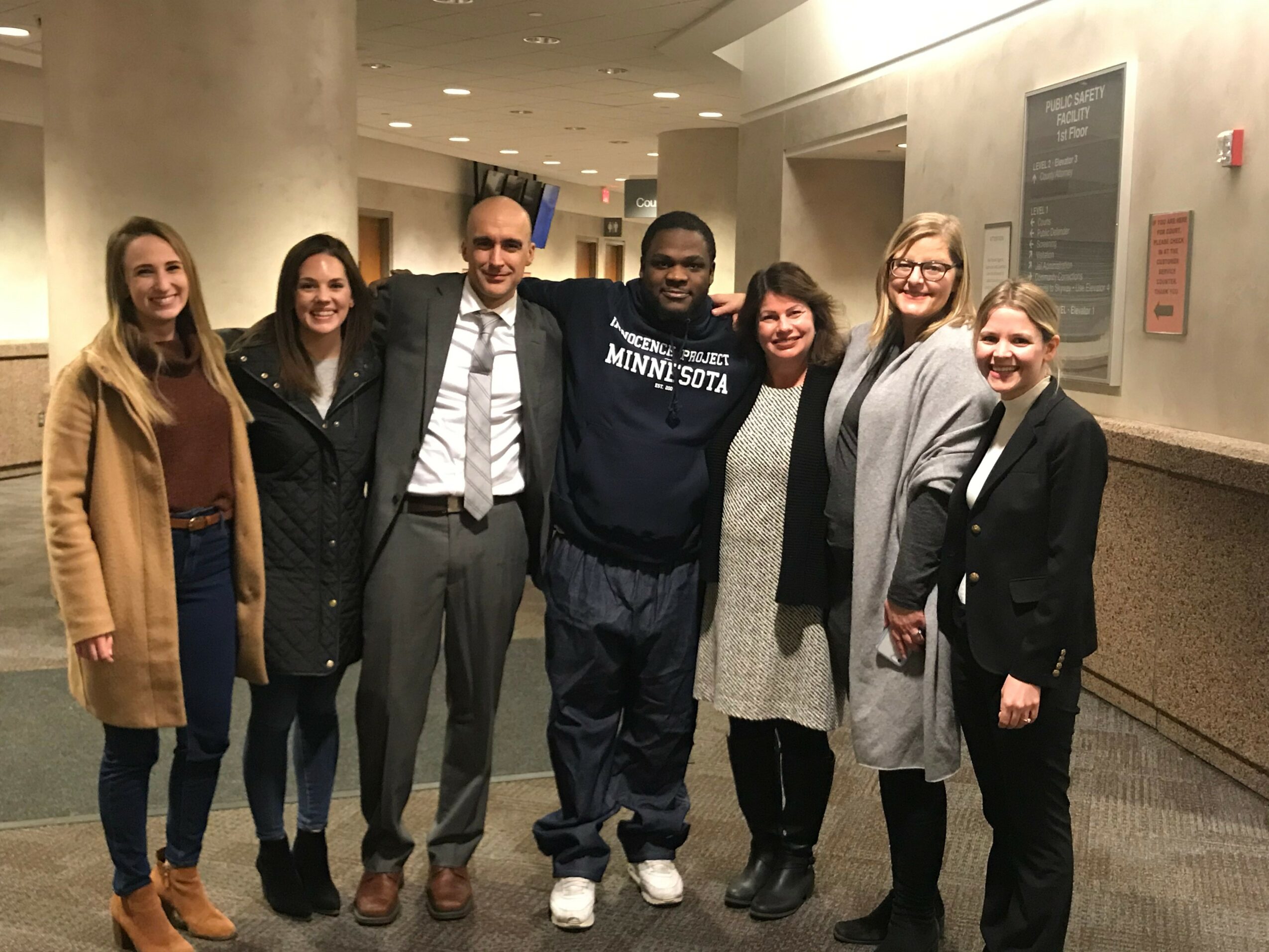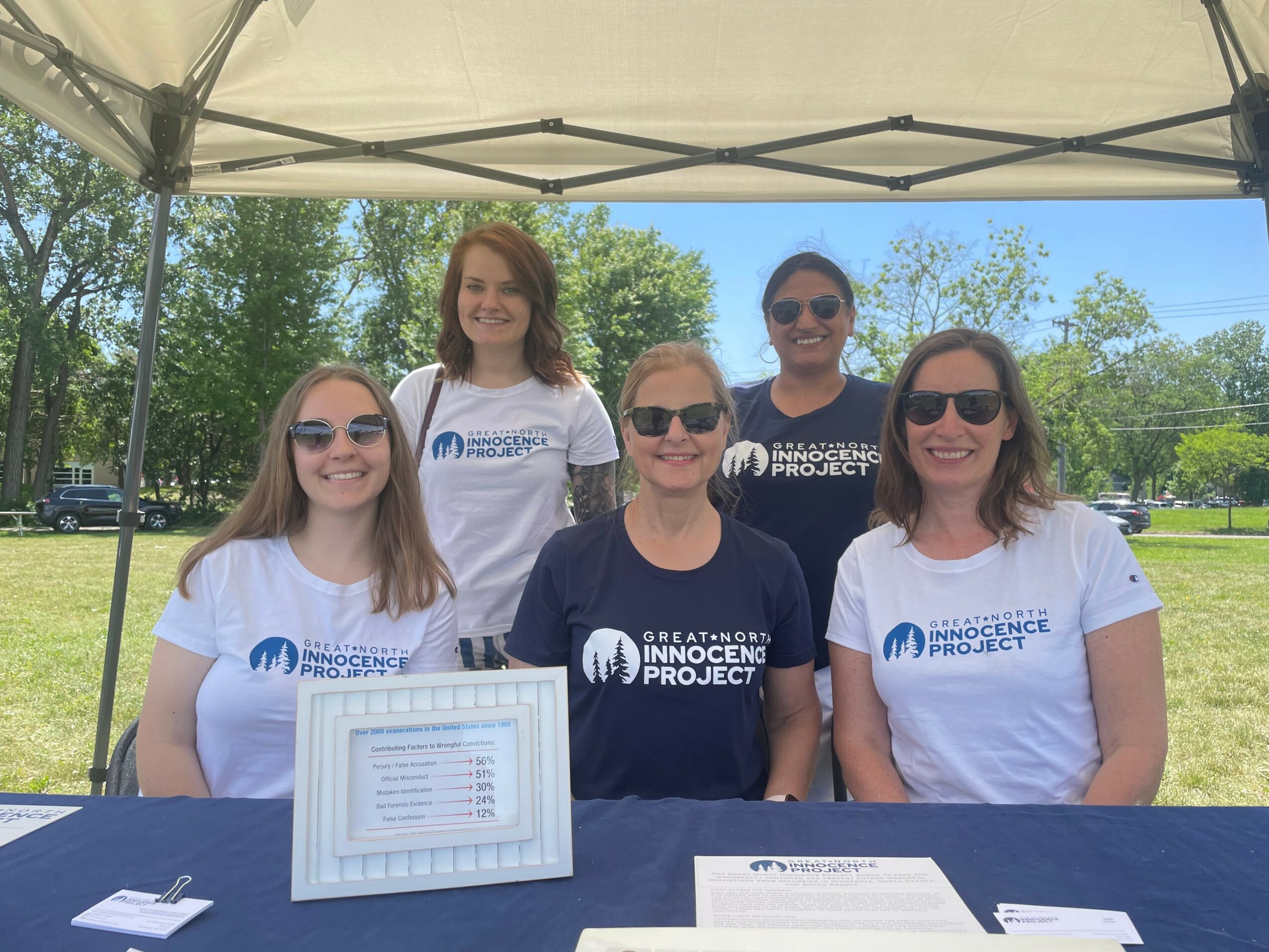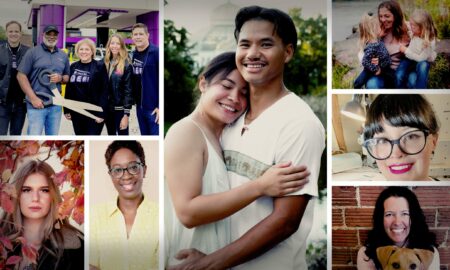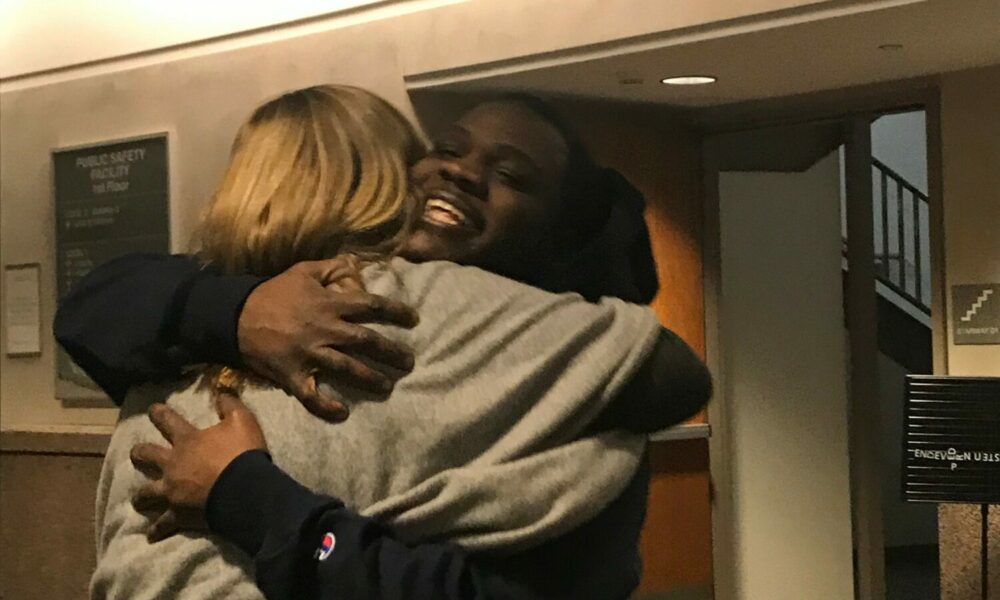

Today we’d like to introduce you to Sara Jones.
Hi Sara, it’s an honor to have you on the platform. Thanks for taking the time to share your story with us – to start, maybe you can share some of your backstories with our readers.
My awareness of criminal law and concepts of justice began in childhood. My dad served for over two decades as the first Minnesota State Public Defender and taught criminal and constitutional law. Our family life revolved around his profession and the legal community. That shaped many of my values. Much later, after shifting my career from practicing law into nonprofit development, I was invited to serve on the Council on Crime and Justice board. There I learned more about mass incarceration, the collateral consequences and ripple effects of a criminal record, flaws in our system, and the importance of research and policy advocacy in improving the criminal legal system. When this position at what was then the Innocence Project of Minnesota opened up a few years ago, I felt called to this work to help people wronged by our legal system and to improve that system.
We all face challenges, but looking back, would you describe it as a relatively smooth road?
The Great North Innocence Project has rapidly grown and increased its complexity as an organization over the past four years. When I started working at the organization, we had two employees, a budget of approximately $325,000, and only served Minnesota. It was a solid entity with a strong and experienced legal director. We were invited to apply for a transformational grant just as I started as executive director. When we received the grant, it more than doubled our budget and allowed us to hire two more attorneys and begin to serve North Dakota and South Dakota proactively. We’ve been enormously fortunate to build upon that first transformational grant, receiving renewals of that funding and growth in our other funding.
The growth necessitated that the organization mature regarding the sophistication of our governance and operations. Our mandate was to be good stewards of our opportunities and increase our impact. We couldn’t simply fall back on “we’ve always done it this or that way.” For the most part, this has been entirely positive. Nevertheless, it has been a big leap, and we’ve had some growing pains to work through along the way. As an executive director, this required thoughtful leadership and sometimes difficult decision-making. However, we recently added a development director and a communications and community outreach director to our team. Due to this increased capacity, I foresee an even greater impact in multiple ways in the coming months and years.
The second big challenge related to this work is simply the slow pace with which our work unfolds. It can take years, if not decades, to move a case from initial application to freedom for a wrongfully convicted person. We have to celebrate incremental “wins” along the way. It can be challenging to tell those stories and help our supporters understand that this is a marathon rather than a sprint. And, imagine what it must feel like to be a wrongfully convicted person, locked away for years, if not decades, for something they didn’t do. They are the real heroes of these stories. We’re constantly looking for ways to encourage their hope and new, innovative methods of achieving success on their behalf. Our policy work can also take a long time, as do most endeavors to transform or improve imperfect systems. Putting together a broad coalition on behalf of a piece of legislation, building the evidence to support our policy recommendations, and getting legislation passed can take multiple years. Still, it is critical to work upstream to prevent wrongful convictions.
As you know, we’re big fans of you and your work. For our readers who might not be as familiar, what can you tell them about what you do?
I am the executive director of the Great North Innocence Project. This nonprofit organization works to free the wrongfully convicted and prevent future wrongful convictions from occurring in Minnesota, North Dakota, and South Dakota. We conduct outreach to educate the public and legal professionals about the causes and consequences of wrongful convictions. Our team also develops and advocates for reforming our criminal legal system to prevent future wrongful convictions.
Our organization is part of the Innocence Network, a consortium of regionally-focused organizations worldwide working to rectify and prevent future wrongful convictions. The Innocence Project in New York leads the Innocence Network. Each innocence organization (including GN-IP) is funded and run independently of one another but shares resources and expertise to support our common missions. I’m most proud of our work successfully freeing innocent people from prison after being convicted of a crime they did not commit, which makes an enormous impact on the lives of those wrongfully convicted and their families and communities. Our work to free innocent people and improve the system also affects everyone who counts on the criminal legal system to advance justice, uphold truth, and keep us safe. We all live within this system, so we all have a stake in making it as just as possible. Innocence organizations give hope to wrongfully convicted people who feel lost and forgotten. Our work can restore some fullness to their lives even if we can’t restore all of what could have been. For instance, our now exonerated client Michael Hansen spent nearly seven years in prison for a crime he did not commit—the murder of his infant daughter, Avryonna (“Avry,” as Mike calls her). Although Avryonna’s death was the result of other causes, testimony from medical examiner Dr. Michael McGee, later deemed not credible and inaccurate by both the courts and several other medical professionals, convinced jurors that Mike was to blame. After being freed with the help of the Great North Innocence Project and the expert testimonies of several physicians and medical experts that contradicted Dr. McGee’s findings, Mike was able to return home to his children and family. During his ongoing journey toward healing post-release, Mike pursued his passion of becoming a tattoo artist. He is now the owner and a tattoo artist at his shop, Kinship Collective Tattoos, in Northfield, Minnesota. He is also a wonderfully hands-on dad, loving son, and overall caring and kind community member who we would have lost to the criminal legal system without the work of our skilled team.
As you can imagine, all of our clients who are wrongly incarcerated for any length of time experience isolation from family and community, loss of income and opportunity, challenges to their identity and integrity, and trauma. Their families experience the same, and by the time an individual approaches an innocent organization for help, they’ve often exhausted all of their other options and lost time and money in the process, all through no fault of their own. Advocating for these individuals and families, and letting them know they have advocates working on their behalf without additional cost, provides hope and a potential pathway to real justice—a critical, unique impact of the Great North Innocence Project. Although the journey certainly doesn’t end when a person walks out of the prison doors to freedom, it is the start of a new opportunity for a rich, free life. It’s an honor to lead an organization with a hand in rectifying wrongs so innocent people can eventually be free.
We’re always looking for lessons that we can learn in any situation. Including tragic ones like the Covid-19 crisis. Are there any lessons you’ve learned that you can share?
COVID has negatively affected everyone’s lives, and the effects on people in custody have been enormous. They have had no options for social distancing, limited personal protection equipment (if any), and limited access to adequate health care. COVID restrictions meant we couldn’t visit applicants and clients who were in prison and couldn’t meet with witnesses in person (often the only effective means for conducting an investigative interview). This delayed our ability to work on cases, which added to the stress already burdening the individuals we were trying to help. In addition, cultivating relationships with community partners is much more effective when we can meet in person. Still, like so many others, we learned creative ways to bridge those barriers as needed. There also has been a benefit of learning to connect with people via virtual meetings: we shifted to making presentations and having meetings online, making it easier to connect with people far away. Reaching more geographically diverse audiences with our programming is an important goal, so virtual technology and people’s comfort with it helped us with that. Providing online programming allows us to reach people who can’t or wouldn’t want to travel to events and people who couldn’t afford the price of a ticket or travel for an in-person event. A great example is our annual Benefit for Innocence. For two years during COVID, we held the event virtually, with no cost to attend. This made the event more accessible. This year, we’re planning for an in-person Benefit event again, but we also will provide access to the event through a free live stream option.
Pricing:
- GN-IP does not charge any fee for a case to be reviewed, investigated, or litigated. We provide all of our services for free, and rely entirely on donations to fund our work.
Contact Info:
- Website: greatnorthinnocenceproject.org
- Newsletter: greatnorthinnocenceproject.org
/newsletter - Instagram: @greatnorth_ip
- Facebook: https://www.facebook.com/GreatNorthInnocenceProject
- Twitter: @GreatNorth_IP
- Youtube: https://www.youtube.com/channel/UClDoF09Vr4OfZsQmC14FjmA
-
Michael Hansen’s story: https://www.
greatnorthinnocenceproject. org/michael-hansen-1 -
Michael Hansen’s tattoo shop profile:https://www.
greatnorthinnocenceproject. org/new-blog/ kinshipcollectivetattoo -
Benefit for Innocence tickets:https://www.
greatnorthinnocenceproject. org/events/2022bfi -
Innocence Network:https://
innocencenetwork.org/
